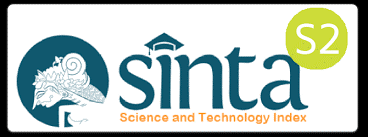Coparenting Model to Preventing the Incidence of Postpartum Blues And Increasing the Success of Exclusive Breastfeeding
DOI:
https://doi.org/10.35730/jk.v16i1.1266Abstract
Breastfeeding difficulties can increase the risk of postpartum blues and hinder exclusive breastfeeding success. Husband and family support are key factors in reducing postpartum blues. This study aimed to identify determinants of exclusive breastfeeding and evaluate the effect of a Balinese culture-based coparenting model in preventing postpartum blues to improve breastfeeding success. A mixed methods approach with an explanatory sequential design was used, involving 11 informants (7 married couples and 4 experts) and 60 respondents divided into intervention and control groups. The intervention applied the Balinese coparenting model "Asah, Asih, Asuh," involving husbands and in-laws in supporting breastfeeding mothers. Quantitative data were analyzed using Wilcoxon, Mann-Whitney, and Chi-square tests (α<0.05). Results showed a 70% reduction in postpartum blues incidence in the intervention group, with no decrease in the control group. Exclusive breastfeeding success reached 76.7% in the intervention group, with a significant difference (p=0.032). The coparenting model was implemented from pregnancy through postpartum to support exclusive breastfeeding. This study concludes that the Balinese culture-based coparenting model effectively reduces postpartum blues and increases exclusive breastfeeding success.
Downloads
Published
Issue
Section
License
Copyright (c) 2025 Martha Winingsih Gusti Ayu

This work is licensed under a Creative Commons Attribution-NonCommercial-ShareAlike 4.0 International License.




